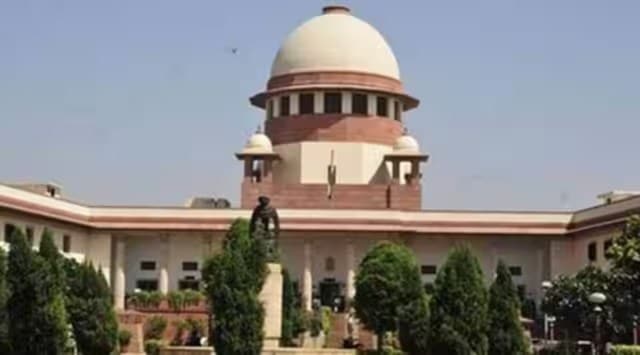In its October 3 judgement directing the Enforcement Directorate (ED) to furnish the grounds of arrest in writing to accused persons, the Supreme Court also gave the agency liberty to redact any “sensitive portions” that may find mention in the document “so as to safeguard the sanctity of the investigation”.
It also said the ED should not categorise anything short of an admission of guilt from a person summoned for interrogation as an ‘evasive reply’.”

“We may also note that the grounds of arrest recorded by the authorized officer, in terms of Section 19(1) of the Act of 2002, would be personal to the person who is arrested and there should, ordinarily, be no risk of sensitive material being divulged therefrom, compromising the sanctity and integrity of the investigation,” a bench of Justices A S Bopanna and P V Sanjay Kumar said.
Story continues below this ad
“In the event any such sensitive material finds mention in such grounds of arrest recorded by the authorized officer, it would always be open to him to redact such sensitive portions in the document and furnish the edited copy of the grounds of arrest to the arrested person, so as to safeguard the sanctity of the investigation,” the bench said.
On Tuesday (October 3), the Supreme Court had underlined that the Enforcement Directorate (ED) is “not expected to be vindictive in its conduct” and ruled that the agency must furnish the grounds of arrest in writing to the accused at the time of arrest.
In the ruling, details of which were made available Wednesday, the court noted a lack of uniformity in the manner in which the agency informs the reasons of arrest. “…it seems that the mode of informing this to the persons arrested is left to the option of the ED’s authorized officers in different parts of the country, i.e., to either furnish such grounds of arrest in writing or to allow such grounds to be read by the arrested person or be read over and explained to such person,” it said.
It pointed out that in the case of Tamil Nadu minister Senthil Balaji, the grounds were communicated in writing, but were only read over in the case of Basant Bansal and his son Panjak Bansal, Directors of M3M real estate group. This was the case the bench was dealing with on Tuesday.
Story continues below this ad
The top court said the Prevention of Money Laundering Rules requires an arresting officer to sign the arrest order appended to the rules. The court said: “…this dual and disparate procedure to convey the grounds of arrest to the arrested person cannot be countenanced on the strength of the very same arrest order”.
The bench said there are two primary reasons why informing the reasons for arrest in writing “would be the advisable course of action to be followed as a matter of principle”.
“Firstly, in the event such grounds of arrest are orally read out to the arrested person or read by such person with nothing further and this fact is disputed in a given case, it may boil down to the word of the arrested person against the word of the authorized officer as to whether or not there is due and proper compliance in this regard… The second reason… is the constitutional objective underlying such information being given to the arrested person. Conveyance of this information is not only to apprise the arrested person of why he/she is being arrested but also to enable such person to seek legal counsel and, thereafter, present a case before the Court under Section 45 to seek release on bail, if he/she so chooses”.
The court also referred to the ED submission that the Bansals were non-cooperative during the investigation despite summons issued to them and were likely to tamper with evidence and said “mere non-cooperation of a witness in response to the summons issued under Section 50 of the Act of 2002 would not be enough to render him/her liable to be arrested under Section 19.
Story continues below this ad
On the agency’s contention that Pankaj “was evasive in providing relevant information”, the bench noted that “it was however not brought out as to why Pankaj Bansal’s replies were categorized as ‘evasive’ and that record is not placed before us for verification”.
The judgement added that “in any event, it is not open to the ED to expect an admission of guilt from the person summoned for interrogation and assert that anything short of such admission would be an ‘evasive reply’.”
Pointing out that the SC had in a previous case “noted that custodial interrogation is not for the purpose of ‘confession’ as the right against self-incrimination is provided by Article 20(3) of the Constitution” and that “merely because an accused did not confess, it cannot be said that he was not cooperating with the investigation”.









